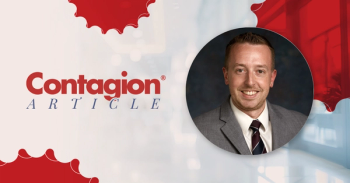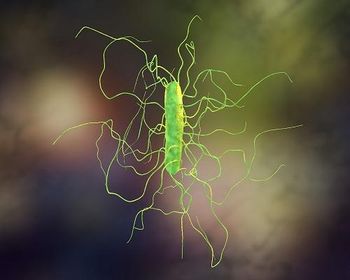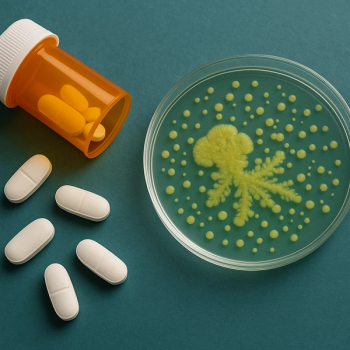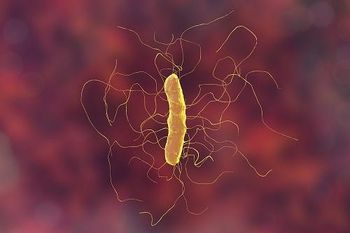
Progress Reported on Trials of Vaccine for C difficile
An investigational vaccine for C difficile demonstrates multiyear efficacy in trials reported at 2020 IDWeek Conference.
An investigational vaccine for Clostroidides difficile demonstrated persistent protection up to 4 years after a 3rd dose, and evaluation of a booster following the 3-dose regimen evidenced continued immunogenicity, safety and tolerability, according to reports at the 2020 IDWeek virtual conference.
Shon Remich, MD, Senior Director, Clinical Research and Development, Pfizer, Downingtown, Pennsylvania reported on the extension of a phase 2 study of a 3-injection regimen with two antigen dose levels,in which a 4th, booster injection was administered to some participants, and monitoring extended for up to 4 years after the 3-dose regimen, or 3 years after the booster.
"A booster dose of Clostroidides difficile vaccine candidate is highly immunogenic, well tolerated and demonstrates an acceptable safety profile in both dose groups," Remich reported, adding "antibody persistence remains stable from 12 months to 4-year post dose 3."
The first stage of the phase 2 trial was conducted from July 16 2015 to March 7, 2017, following "Fast Track" designation from the FDA on August, 2014.Approximately 850 health adults aged 65 to 85 years of age were enrolled and randomized to receive injections with either a 100μg or 200μg total dose of combined toxin A (TcdA) and B (TcdB), or placebo.The active agent or placebo was administered in one of two 3-dose regimens: on days 1, 8 and 30 or Months 0, 1 and 6.
Immunogenicity testing was conducted on samples obtained at each of 9 study visits through 12 months after the 3rd dose.At the conclusion of this portion of the trial, Kathrin Jansen, PhD, Senior Vice President and head of Vaccine Research and Development, Pfizer
"We are very encouraged by these interim immunogenicity and safety results demonstrating robust increases in vaccine-elicited neutralizing antibodies to both toxins, that we believe could provide protection against C difficile disease," Jansen indicated in a press release.
In the extension stage of the trial, subjects who had received vaccine were re-randomized 12 months after the third dose, to receive either a booster dose or placebo in a 1:1 ratio.These subjects were then followed for immunogenicity for 3 years after the booster dose, which was 4 years after the 3rd dose.
Remich reported that peak antibody response to vaccination was observed between day 8 and 30 following booster administration."Both regimens demonstrated robust anamnestic responses with peak levels above the three-dose peak," he indicated.
Toxin A geometric mean concentrations (GMC) remained above pre-booster GMCs 3 years after the booster for both dose levels and regimens.Antibody persistence for both groups demonstrated stable antibody levels four years after the primary vaccination among those who did not receive the booster dose, according to Remich.
Remich indicated that adverse event rates were similar between both regimens and placebo, and there were no serious adverse events related to the vaccine at any dose or regimen.The safety profile was similar to what was found in the initial stage of the study.
The report is abstract 12 at the 2020 IDWeek conference: "Randomized Studies of Two Clostridioides IClostridium) difficile Vaccine Formulations"
Newsletter
Stay ahead of emerging infectious disease threats with expert insights and breaking research. Subscribe now to get updates delivered straight to your inbox.

































































































































